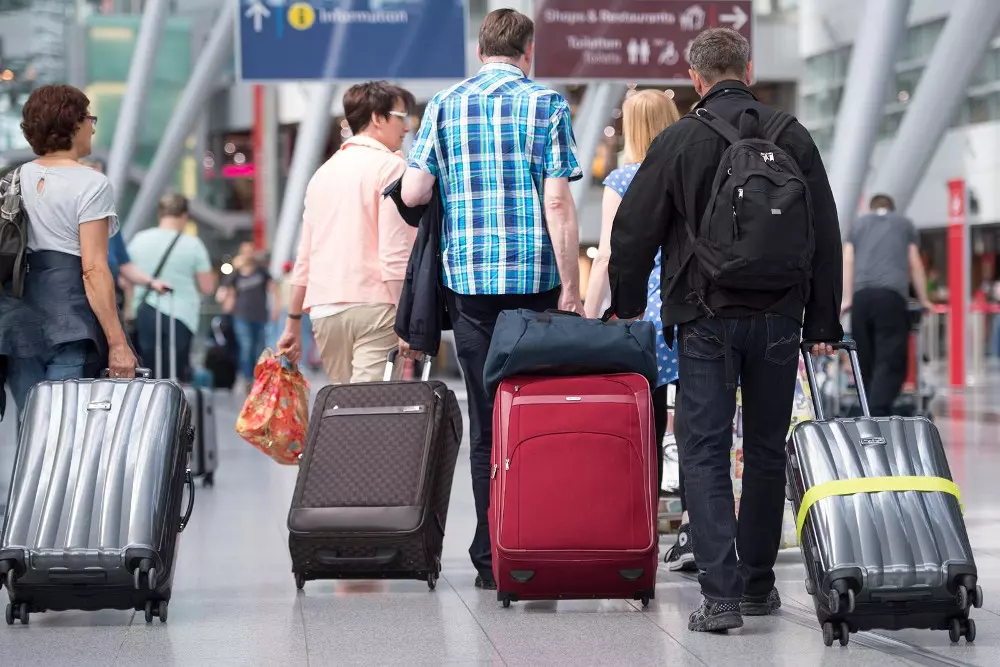The Economist, a British magazine, states that more and more Americans are relocating to Europe. It was once thought that the U.S. was the perfect country for immigrants, and leaving it to go anywhere else seemed ludicrous. Accurate statistics are not yet available as governments find it challenging to keep track of foreign residents, since it is a relatively new phenomenon. However, many European countries are witnessing an evident trend. And many are not so much looking for a new life as fleeing from the old one.
Thus, in 10 years the number of Americans in the Netherlands increased from 15,500 to 24,000 people, in Portugal tripled to 10,000, and in Spain grew from 20,000 to 34,000. It grew steadily, but gradually, in France, Germany, and Northern Europe. In Britain, the number of permanent resident Americans is estimated to have risen from 137,000 in 2013 to 166,000 in 2021.
Meanwhile, more and more residents of the United States are admitting they want to leave their country, the magazine says. Thus, according to the Gallup Institute, under Barack Obama (2008-2016 presidency) 11% of respondents wanted to leave the U.S., under Donald Trump (2016-2020): 16%, then under Joe Biden this figure increased to 17%. And those who promised to leave if Trump was elected, mostly did not leave, but liberals, who mainly voted for Biden, are now more likely to emigrate.
Of course, the number of people leaving the country seems paltry against the backdrop of a population of 330 million. But the majority of them point to despair at where the country is headed as the reason. “Every month I get calls from Americans asking me how to get here,” Caroline Behringer, a former adviser to former US House Speaker Nancy Pelosi, who moved to Amsterdam in 2017, told The Economist. For most emigrants, she said, politics was not so much a reason to leave as an excuse not to return. It is especially related to the “continuing division of society.” Americans are also attracted to Europe because they can work less there and spend more time on their private lives.
 “We hear all the time that work-life balance is much better here,” Tracy Metz, who heads the John Adams Institute, explained to the magazine. Americans work 1,811 hours a year, Europeans average just 1,571, and the Dutch even less: 1,427.
“We hear all the time that work-life balance is much better here,” Tracy Metz, who heads the John Adams Institute, explained to the magazine. Americans work 1,811 hours a year, Europeans average just 1,571, and the Dutch even less: 1,427.
While the Netherlands used to attract Americans with its loose morals, she said, priorities are now more down-to-earth. Everyone knows that Americans are not very eager to master foreign languages. Therefore, the spread of international English makes their lives in Europe much easier. In Dutch universities, for example, 28% of undergraduate programs are in English.
Many emigrants are also fascinated by the reliable European social security system. The magazine cites the example of writer Heather Caldwell Urquhart, who moved to Lisbon from Massachusetts in 2021. At home, she had to look for extra income just to get health insurance. Now living in Portugal, her family pays many times less for insurance coverage than a similar American option cost. “We didn’t realize how much the social fabric of the U.S. was damaged until we moved here,” she explained to the paper.
Psychiatrist Sylvia Johnson, who moved with her family to Portugal in 2022, agrees. The main reasons for them, African Americans, were racism and violence. She spent years trying to convince her lawyer husband to leave the country. The year 2021 proved to be a turning point after the high-profile murder of African American George Floyd by a police officer led to mass protests. Her husband then told her that they needed to have guns in the house. “That being said, I thought, if I live in a country where I need a gun to protect my family, then this country is not right for me,” he recalls. Several of their relatives were killed. Now, in a new environment, they are trying to shake off the wariness that minorities in the United States have built up over the years.
There are other, more prosaic factors, the magazine writes. The pandemic has made the ability to work remotely a new reality, and along with it, the comfort of living abroad without having to quit your job. Meanwhile, European countries have created very tempting conditions for foreigners.
For example, writes The Economist, the Netherlands allows companies to exempt skilled foreign workers from taxes on 30% of income. In Portugal, obtaining a resident visa requires an income of 150% of the minimum wage in the country, i.e. about USD 1,190 per month: quite an affordable amount for American retirees. In addition, foreigners are allowed to pay a flat tax of 10% on “passive income,” which includes pensions or investments. For example, Spain’s Beckham Law imposes a flat tax of 24% on income earned in the country. Many countries are also introducing digital nomad visas for tech freelancers.
According to the magazine, such offers go a long way toward explaining why many not-so-wealthy American expats are coming to Europe. Although some countries are targeting a richer audience. For instance, Italy seeks to attract wealthy people by allowing them to pay an income tax of EUR 100,000 a year, regardless of how much they earn.
The near mass relocation of Americans is noted today by many statistical agencies and media outlets, most notably Bloomberg. This is happening, its piece says, against a backdrop of rising cost of living, housing prices, and crime rates in the US.
Previously, retirees and wealthy people tended to migrate. But the recent trend is that young people are increasingly deciding to relocate. The reason is that they can’t buy a home and support a family in the States.














Comments